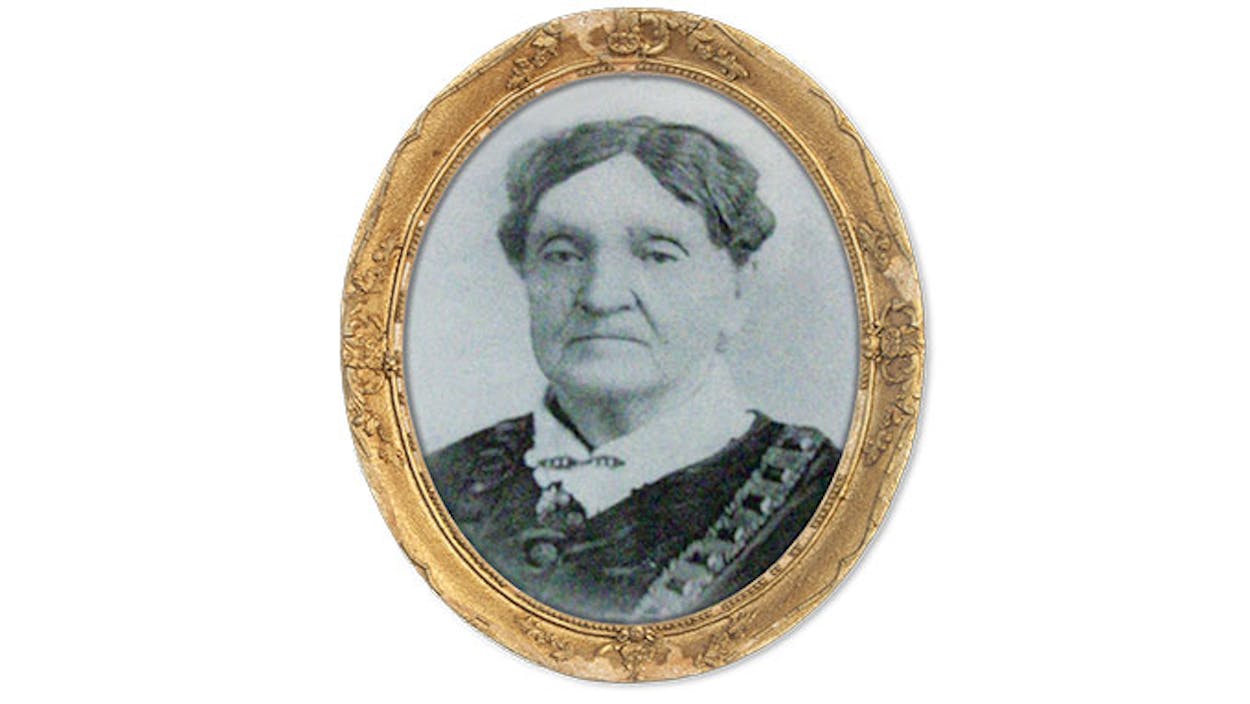Several years ago, when Bill White was still the mayor of Houston, Toni Lawrence, an ebullient sixty-something former city councilwoman and current armchair historian, decided it was time to set right a historical wrong. White had just finished giving a tribute to the Allen brothers, the late founders of Houston, when Lawrence cornered him and declared that, in fact, Augustus and his younger brother John had simply done what many men have done through the ages: taken credit for a woman’s work, in this case, that of Charlotte Allen, Augustus’s wife and the person who probably provided the money to buy the land that would become the city of Houston back in 1836.
White went home and relayed Lawrence’s correction to his wife, Andrea, a novelist and inveterate Houston booster. Soon after, Andrea White joined Lawrence on a mission to restore the lost histories of Houston women by creating an archive of the stories of groundbreaking Houston women. They also reeled in Elizabeth Gregory, the director of the Women’s, Gender, and Sexuality Studies Program at the University of Houston, and Suzan Deison, the president and CEO of the Greater Houston Women’s Chamber of Commerce, making them a “merry band of four,” in White’s words.
Many people around these parts know the Allen brothers as the real estate scalawags who marketed a mosquito-infested swamp as a cool oceanfront paradise. Few, however, know of Charlotte, who grew up in upstate New York, where her father was, perhaps not coincidentally, a prominent developer on the banks of the Seneca River. While it’s possible to believe, as Deison does, that Augustus swept the rich but plain Charlotte off her feet, Lawrence believes otherwise. “I think Charlotte was the opportunist,” she says. Back then, there weren’t many ways for an ambitious young woman to get out of Podunk, so when Charlotte had the chance to marry her way to Texas, she leaped at it.
Once there, she became a protean hostess and networker: she charmed, among others, their neighbor Sam Houston. (Apparently, it was her idea to name the new town in his honor.) Over the years, Charlotte, along with her husband—married women could not then own property—became a major real estate developer. “This was a kick-ass woman,” White stresses.
Whether it was Charlotte’s money that actually paid for the land that would become Houston is open to conjecture, but Lawrence and her allies are continuing to dig, somewhat to the chagrin of certain Allen family descendants. (“There are people who are pro Charlotte and people who are pro the Allen brothers,” notes White.) Essentially, Team Charlotte asserts that when the Allen brothers bought half a league of land on Buffalo Bayou for $5,000 in 1836, they were not rich men. But Charlotte was sitting on at least $2,000 that she’d inherited from her father, money that most likely went toward the purchase. (Because of the prohibition against wives controlling property, her name does not appear on any deeds.) Two years later, John Allen died at age 28 with an estate “conjointly” shared with Augustus—valued at $814,462. Almost immediately, a feud broke out between Augustus and his four surviving brothers.
Based on their investigation of legal documents, Charlotte’s advocates posit that the fight over money took its toll on the marriage—Augustus and Charlotte separated in 1850, and Augustus eventually lit out for Mexico, deeding everything he owned in Texas to Charlotte. As one historian noted, “It has been said that he and his wife, who was a most estimable woman, and he, no less estimable, had agreed to disagree on matters pertaining to properties owned by them.” In other words, Charlotte probably demanded her portion of their fortune.
If the gang of four can prove that Charlotte was an investor in, and therefore an original founder of, Houston, then the wheel of history will take another turn, and the Allen brothers may eventually have to be known as the Allen trio. “People are asking questions [about Charlotte] for the first time in a long while,” Gregory says. In the process, the line between history and mythology might get a little clearer too. Adds Gregory: “People never asked much about the Allen brothers either.”








